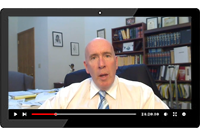Slippery, wet floors are a leading cause of slip and fall injuries which may result in harm or even death. If the floor in a store, office building, or private home becomes wet and slippery, it’s the responsibility of the property owner to eliminate or at least take measures to mitigate the risk of the hazard to ensure your safety.
Floors can become wet and slippery from a wide range of substances that are either applied, spilled, or tracked in on them, including:
- Water, including rain, ice, and snow
- Sand and mud
- Food stuffs
- Cleaning products such as detergents or polishes
- Bodily fluids
- Oils or grease that leak from machinery
- Trash and waste material
If a wet floor hazard is temporary, the home or property owner or property manager should act in a timely manner to remedy the situation. After cleaning, if the floor remains wet and slippery in a public place, a wet floor sign should be used to warn visitors of the hazard.
How much damage can a wet floor do?
Slipping and falling on a wet floor can have serious if not devastating consequences. Common types of wet floor slip and fall include:
- Broken bones
- Soft tissue injuries including bruises, cuts and abrasions, torn or sprained ligaments or tendons
- Back and neck injuries
- Head injuries
- Traumatic brain injuries
If you or a loved one have been injured due to a slip and fall accident on a wet floor that was the result of negligence, you have a legal right to pursue financial compensation for the damages in the state of California. Wondering if it’s worth seeking a settlement? You’ll need to take into consideration how much a slip and fall case is worth.
Because each slip and fall case is different, the answer depends on a number of criteria. Some of the damages that will be used to calculate a settlement include:
- Medical bills
- Hospital costs
- Expected future medical costs
- Lost wages
- Future lost earnings
- Rehabilitation
- Pain and suffering
When you should contact an attorney
A property owner and/or manager has a duty to maintain their premises to a reasonable standard and remedy any hazards in a timely manner. If you’ve been injured in a slip and fall accident resulting from a wet floor you have to show evidence that your injuries were the result of negligence on the part of the property owner and/or manager.
Unfortunately, it can be challenging to demonstrate liability on the part of the property owner/manager. You’ll have to prove that either:
- The property owner/manager in question should have known of the hazardous condition
- The owner and/or employee knew about the condition, but did not remedy it
- The owner caused the hazardous condition
Hiring an experienced slip and fall attorney can help you gather all the evidence needed to successfully prove your claim.
The Law Offices of Robert F. Brennan, slip and fall personal injury attorney, has an excellent track record of fighting insurance companies to get fair compensation for clients.



